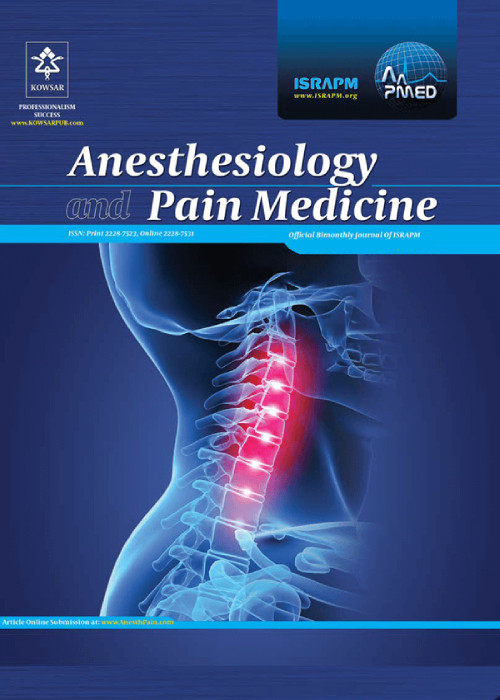Comparing the Effect of Dexmedetomidine Versus Intravenous Lidocaine on Colonoscopy Candidates Under Sedation with Propofol-Fentanyl: A Clinical Trial
Colonoscopy is an invasive and short-term diagnostic-therapeutic method that is associated with significant pain, discomfort, and anxiety in patients. Thus, various sedation and analgesia methods are used to reduce these complications.
This study compared the effect of dexmedetomidine versus intravenous lidocaine on colonoscopy candidates under sedation with propofol-fentanyl.
This double-blind clinical trial was conducted on two groups of randomly divided patients (n = 60 each) referring to the colonoscopy unit of Imam Khomeini Hospital in Ahvaz, Iran. The first group was given 2% intravenous lidocaine with an initial dose of 1.5 mg/kg and a maintenance dose of 1 mg/kg/h, plus propofol 0.5 mg/kg and 1 µg/kg fentanyl. In contrast, the second group was given dexmedetomidine with an initial dose of 1 µg/kg and a maintenance dose of 0.5 µg/kg/h plus 0.5 mg/kg propofol and 1 µg/kg fentanyl. Hemodynamic changes, degree of sedation, and patients' pain were measured and recorded at certain intervals.
No significant differences were observed between the dexmedetomidine and lidocaine groups regarding gender, age, and weight (P > 0.05), and the two groups were homogeneous in this regard. The two groups were significantly different with respect to their heart rate after sedation (from 5 to 20 minutes) (P < 0.05), which was lower in the group receiving dexmedetomidine. In terms of mean arterial blood pressure, no significant difference was found between the dexmedetomidine and lidocaine groups (P > 0.05). With respect to the pain score at the end of the procedure, the two groups were significantly different (P < 0.05), with the group receiving dexmedetomidine obtaining a lower score.
Although the use of lidocaine and dexmedetomidine is associated with the least hemodynamic changes, dexmedetomidine can create more suitable and favorable conditions during and after colonoscopy by inducing a higher degree of sedation and more analgesia.
Colonoscopy , Dexmedetomidine , Fentanyl , Lidocaine , Propofol , Sedation
- حق عضویت دریافتی صرف حمایت از نشریات عضو و نگهداری، تکمیل و توسعه مگیران میشود.
- پرداخت حق اشتراک و دانلود مقالات اجازه بازنشر آن در سایر رسانههای چاپی و دیجیتال را به کاربر نمیدهد.



